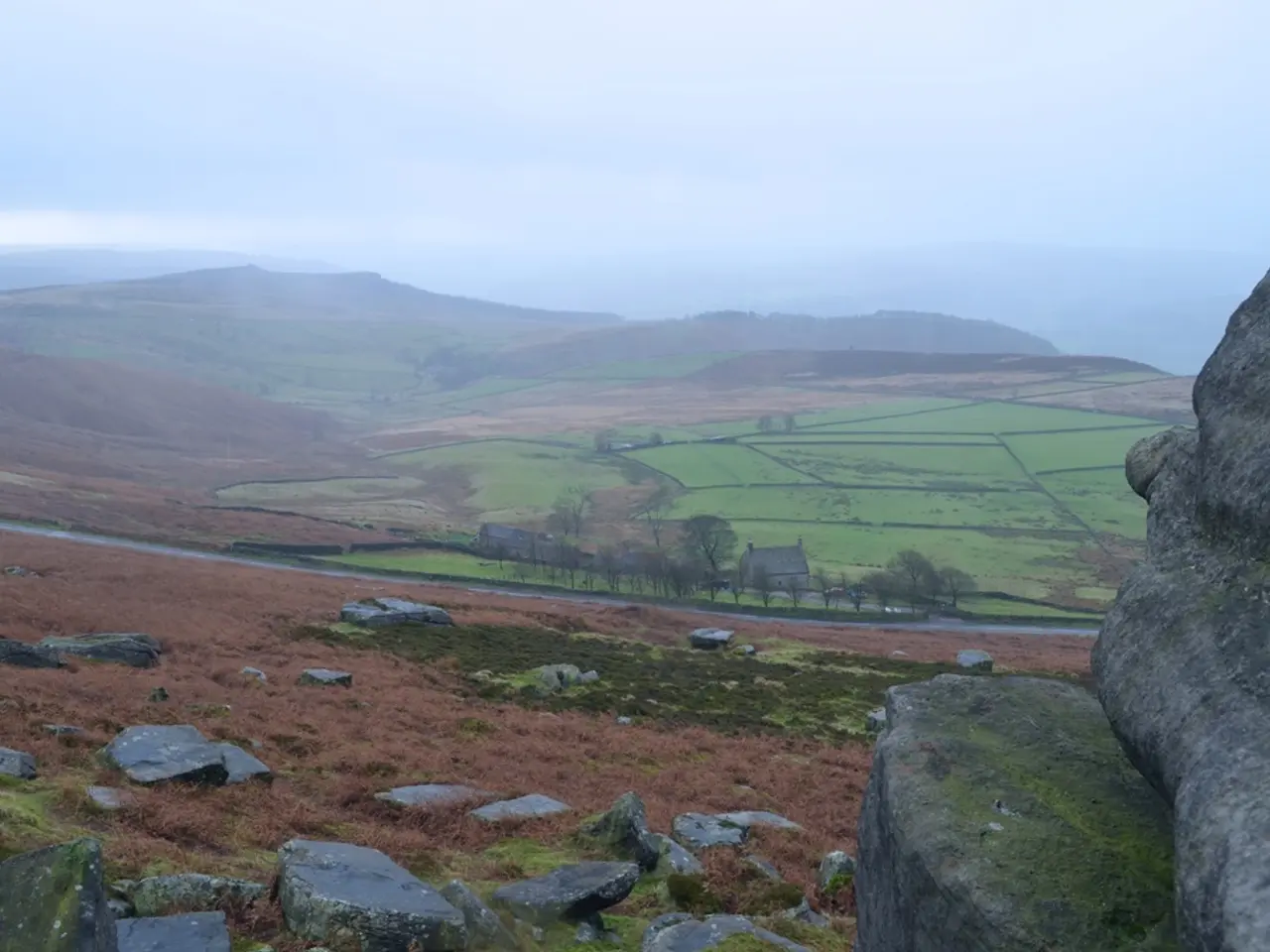Massive Wildebeest Migration Under Threat by Surge in Tourism
In the heart of East Africa, the Masai Mara nature reserve in Kenya and the Serengeti in Tanzania are two of the world's most renowned wildlife reserves. These vast savannahs are currently hosting the annual wildebeest migration, a natural spectacle that attracts millions of tourists each year.
However, recent developments and tourist behaviour have raised concerns about the impact on these fragile ecosystems. Tourists have been observed disregarding safety rules, such as leaving their vehicles to take selfies in the Masai Mara savannah, which is not allowed for safety reasons. Additionally, some visitor vehicles have been seen blocking the path of wildebeest, disrupting their migration for better photo opportunities.
The increasing popularity of the Masai Mara has led to a surge in tourism-related costs. A twelve-hour visit during peak season now costs 200 US dollars, a significant increase from previous prices. To cater to this growing demand, investments are being made in luxury camps within the Masai Mara nature reserve.
However, these high-end resorts have been criticised for their negative impacts on wildlife and the ecosystem. The establishment of such developments in key wildlife corridors has fragmented habitats, disrupted migration routes, and undermined local conservation efforts. The wildebeest migration population has drastically declined from around 140,000 to 15,000, in part due to fencing and blocked migratory paths caused by these developments.
Conservationists, local Maasai communities, and organisations like the Institute of Maasai Education, Research, and Conservation (MERC) have raised serious concerns about the legality and ethics of these projects. Issues include lack of Free, Prior, and Informed Consent from indigenous communities, absence of transparent environmental assessments, and alleged violations of environmental laws. MERC has labelled the Ritz-Carlton project a "global scandal," demanding full disclosure of land leases, environmental approvals, and community engagement documentation. Legal action against county officials and regulatory agencies has been initiated to address these grievances.
The behaviour of some tourists and the issue of overtourism have also raised concerns about damaging the ecosystem in the Masai Mara and Serengeti. The annual wildebeest migration is a significant highlight for visitors, but their actions can have detrimental effects on the wildlife.
The Masai Mara and Serengeti are not just tourist attractions; they are crucial for wildlife survival. These developments challenge long-standing community-led conservation models that balance livestock grazing and wildlife protection, risking the loss of both biodiversity and cultural heritage.
Meanwhile, in the Serengeti, a video recently sparked a sharp reaction from Tanzania's national park authority, Tanapa. The video showed tourists approaching and touching a lion, behaviour that is strictly prohibited. This incident highlights the need for education and awareness among tourists to ensure the conservation of these precious ecosystems.
References:
- MERC
- The Guardian
- Bloomberg
- BBC News
- The concerns about the impact of tourism on the Masai Mara and Serengeti ecosystems extend beyond reckless behavior by visitors, as there are growing criticisms of luxury resorts, such as the Ritz-Carlton project, which have been reported to fragment habitats, disrupt migration routes, and undermine local conservation efforts.
- There have been reports of a drastic decline in the wildebeest migration population, with numbers dropping from around 140,000 to 15,000, in part due to fencing and blocked migratory paths caused by tourism developments and luxury resorts.
- Regarding the Masai Mara, conservationists, local Maasai communities, and organizations like MERC have raised concerns about the legality and ethics of these projects, questioning the lack of Free, Prior, and Informed Consent from indigenous communities, absence of transparent environmental assessments, and alleged violations of environmental laws.
- In Tanzania's Serengeti, a video of tourists approaching and touching a lion has sparked outrage from the national park authority, Tanapa, highlighting the need for education and awareness among tourists to ensure the conservation of these precious ecosystems.
- Seeking a sustainable solution, some environmental scientists propose budget-travel alternatives, cultural-travel experiences, and adventure-travel opportunities that prioritize wildlife conservation and respect for the environment, potentially reducing the negative impacts of sports-analysis enthusiasts and lifestyle tourists on these fragile ecosystems.





